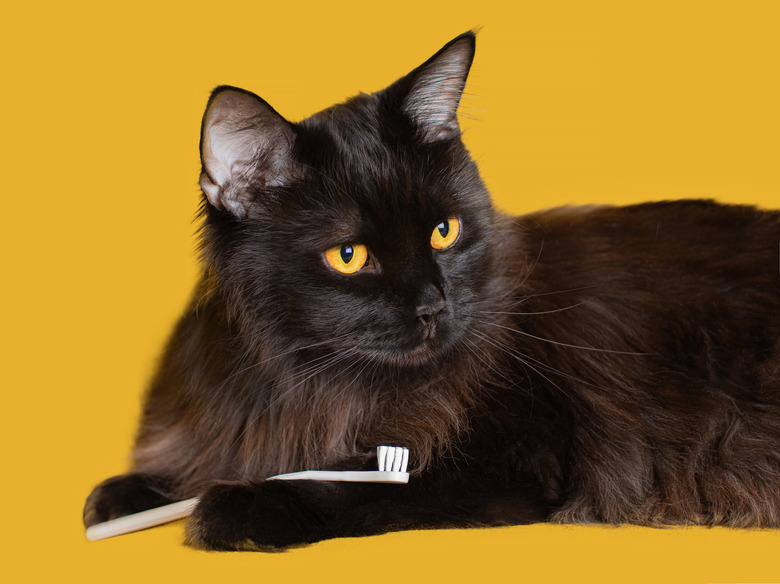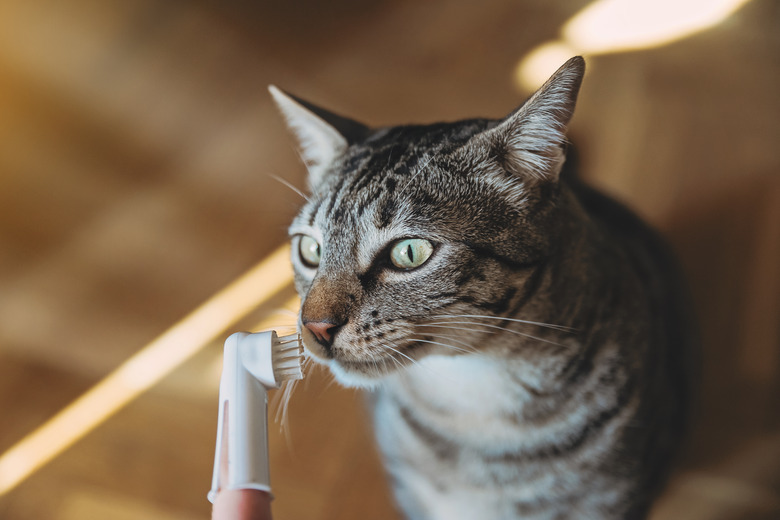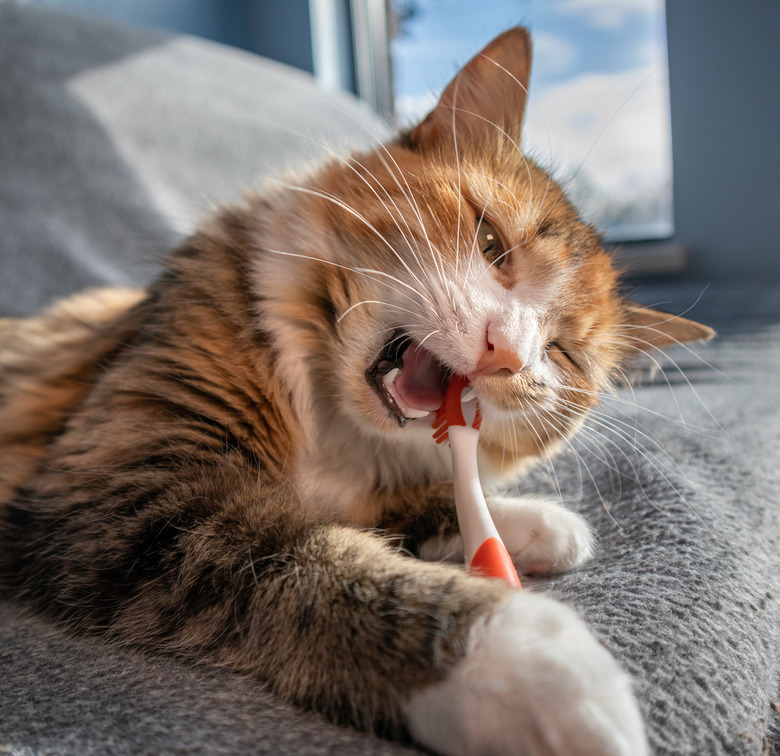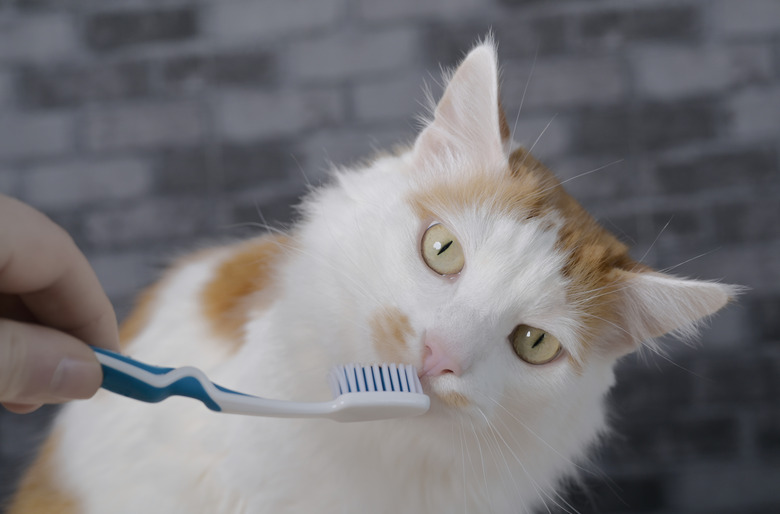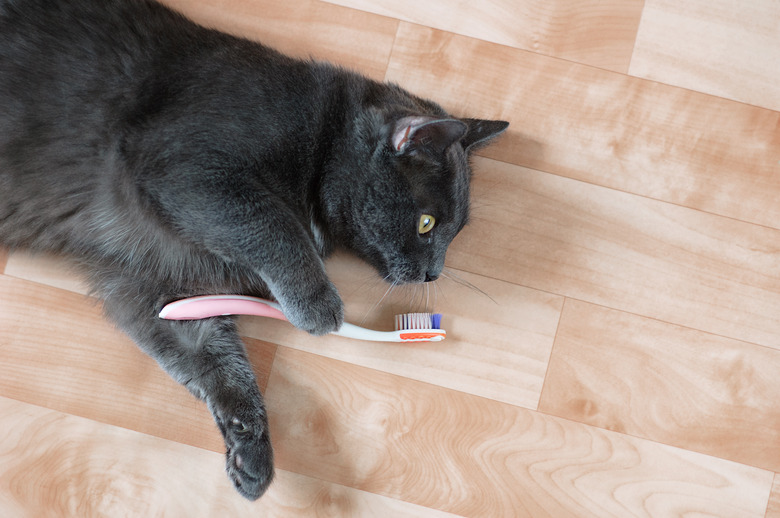Should I Brush My Cat's Teeth? How Often, And How Do I Do It?
Feline dental disease is a major problem for cats. According to veterinary studies, between 50 and 90% of cats over the age of 4 have some kind of dental disease. As a result, all cat parents should be thinking about their cat's dental health. Just like we brush our teeth daily, should you also be brushing your cat's teeth?
Should you brush your cat's teeth?
Should you brush your cat's teeth?
Yes! Brushing your cat's teeth is the best way to protect your cat's oral health. Brushing your cat's teeth removes plaque which prevents the buildup of tartar. Keeping your cat's teeth clean with regular brushing helps prevent gum diseases such as gingivitis and other periodontal disease. Regular brushing of your cat's teeth can help prevent bad breath, tooth loss, and oral discomfort. Keeping your cat's mouth clean also makes it more comfortable. Although brushing your cat's teeth is important for keeping your cat's mouth healthy it doesn't eliminate the need for professional teeth examinations and cleaning by your cat's veterinarian.
How often should you brush your cat's teeth?
How often should you brush your cat's teeth?
To keep your cat's teeth clean and healthy it's best to make time to regularly brush your cat's teeth. If possible it's ideal to brush your cat's teeth twice a day. Setting a goal of trice a day brushing is great, but whatever brushing you can do is better than nothing. An easy way to incorporate toothbrushing into your cat's schedule is to brush teeth when you feed your cat breakfast and dinner.
Supplies needed for cat tooth brushing
Supplies needed for cat tooth brushing
For brushing your cat's teeth you're going to need a toothbrush and toothpaste. Cat toothbrushes come in two options. The first kind of cat toothbrush has a long handle and resembles a human toothbrush. The second option is a finger brush that slips over your finger and has soft bristles on the end. Either toothbrush option works well; it just depends on your preferences and what your cat finds most comfortable. Don't ever use people's toothpaste as it contains ingredients that are toxic for cats.
For brushing your cat's teeth, only use cat toothpaste and never human toothpaste. Cat toothpaste is made to be safe for cats, and flavors cats like. Cat toothpaste is available in a variety of flavors that are attractive to cats. These flavors often include chicken, seafood, beef, and other cat-attracting flavors.
Introducing your cat to tooth brushing
Introducing your cat to tooth brushing
When introducing tooth brushing into your cat's routine, it's important to go slowly and make sure that your cat is comfortable with the process. Start by massaging and rubbing your cat's cheeks and mouth area while you are cuddling. Praise and reward your cat with kitty treats for letting you touch their mouth area including teeth and gum line.
When your cat is used to their mouth being handled, it's time to start introducing toothbrushing. If possible it's best to introduce your cat to their mouth being handled, and teeth being brushed when they are young kittens. When brushing your cat's teeth, pay attention to your cat's body language while you are brushing to make sure that your cat is comfortable. If your cat becomes uncomfortable or upset, stop toothbrushing and try again another time.
First, put the toothbrush of choice out for your cat to explore. Praise and give your cat treats for any interest in the toothbrush. Then, put the cat toothpaste on your cat's toothbrush. Just like you have done with massaging and touching your cat's mouth area, do the same thing but with the toothbrush. Praise and treat your cat for letting you brush their mouth.
Options for if your cat says no
Options for if your cat says no
If your cat's teeth can't be brushed because your cat is stressed or uncomfortable by the process there are other dental product options available. While tooth brushing is the best way to keep your cat's teeth clean you can also look into dental water additives made for cats. Some dry cat foods and crunchy cat treat or chews are designed to clean a cat's teeth. These treats and additives can help improve your cat's dental health. If your cat isn't comfortable having their teeth brushed, talk with your cat's veterinarian about what the best option for your cat's dental care at home will be.
The bottom line
The bottom line
Dental disease is a serious issue for cats. To improve your cat's oral hygiene and prevent periodontal disease, consider adding tooth brushing into your cat's regular routine. Daily brushing of your cat's teeth can remove plaque and prevent tartar from building up on your cat's teeth. Prepare your cat for tooth brushing by first exposing your cat to their mouth being touched. Then when your cat is comfortable introduce the toothbrush. For brushing your cat's teeth, you should only use toothbrushes and toothpaste specifically designed for cats.
